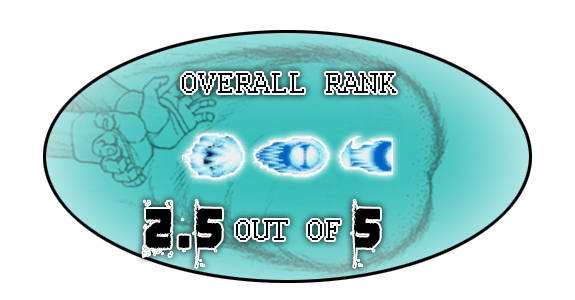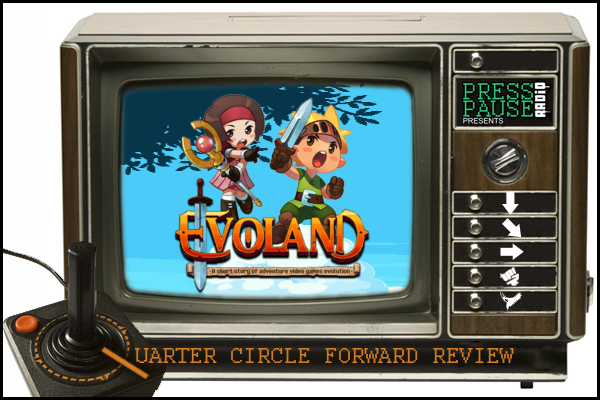
 amers are a fickle bunch, and while I understand that I’m posing an opinionated statement as fact, the evidence that supports the conclusion isn’t just some common consensus that you can argue, it’s reality. Keeping that in mind, when a game pays some sort of tribute or homage to some bit of allusion in video game culture that only a gamer would recognize then the odds have always shown the reference to be a surefire hit among players as a standout moment within the game. Whether it’s shameless and shallow or well thought out and brilliant, the love letter mechanic has always been met with open reception. Still, how well does the concept pan out when the game is entirely built around it?
amers are a fickle bunch, and while I understand that I’m posing an opinionated statement as fact, the evidence that supports the conclusion isn’t just some common consensus that you can argue, it’s reality. Keeping that in mind, when a game pays some sort of tribute or homage to some bit of allusion in video game culture that only a gamer would recognize then the odds have always shown the reference to be a surefire hit among players as a standout moment within the game. Whether it’s shameless and shallow or well thought out and brilliant, the love letter mechanic has always been met with open reception. Still, how well does the concept pan out when the game is entirely built around it?
Shiro Games aims for the stakes with Evoland, a literal portrayal of the growth in adventure video games from the late eighties to the present. While the gimmick is heartwarming and will appeal to an audience in some capacity, it barely stands to prop up a game that can’t competently stand on its own otherwise.
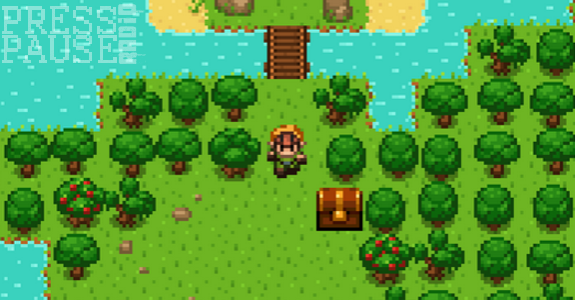
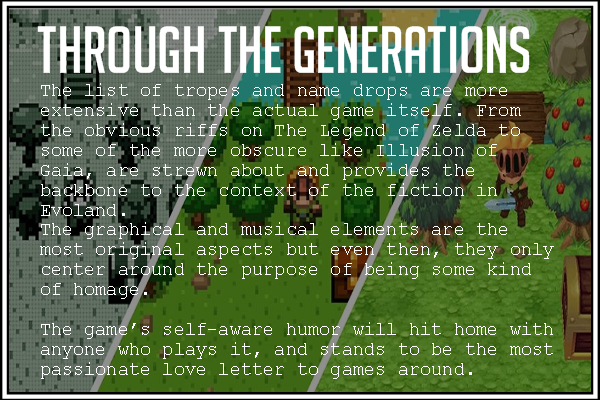 Evoland is an ostensible tribute in every way you see, hear, and play it from the moment it boots up on your monitor—and the attention to detail is an exercise of vindication for passionate gamers who play it. There’s a drive to the premise that fuels playing and successfully for the most part as you slowly start building the game from exploration and discovery as it moves forward from the initial starting point.
Evoland is an ostensible tribute in every way you see, hear, and play it from the moment it boots up on your monitor—and the attention to detail is an exercise of vindication for passionate gamers who play it. There’s a drive to the premise that fuels playing and successfully for the most part as you slowly start building the game from exploration and discovery as it moves forward from the initial starting point.
The references don’t simply stop the buck at some similarity or pun that sources games like Zelda and Final Fantasy; entire mechanics and play styles create a virtual smörgåsbord of design that dynamically changes as you progress. To elaborate, within minutes of playing I slowly unlock the functionality and features music and quadrilateral movement, elements normally expected and taken for granted were now incentives to unlock, a kick of joy that catered to the nostalgia and passion involved with video games.
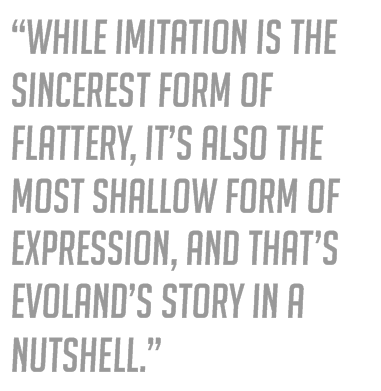 Gameplay primarily focuses on two styles: You’ll take control of the gradually developing trademark protagonist Clink in an overheard Zelda-styled campaign of exploration and combat, or a turn-based affair similar to most JRPGS of the 16-bit era. The flow will constantly change up though, and Evoland directly uses the juxtaposition of these formulas like gamer’s time capsule. For example, when advancing in the game you’ll soon encounter crystals that change back from an older 16-bit style to a more modern look, and the different aspects of the graphical perspectives will alter obstacles in the environment as well as specific enemies and what approach is required to defeat them. The cause and effect that the mechanics offer beyond the superficial nature of them being represented to begin with is what really hits home with Evoland. Hell, at one point the game turned into a Diablo tribute. Indeed, the simple mechanics are infused with a charismatic charm of catering to the player’s familiarities. And it works, most of the time.
Gameplay primarily focuses on two styles: You’ll take control of the gradually developing trademark protagonist Clink in an overheard Zelda-styled campaign of exploration and combat, or a turn-based affair similar to most JRPGS of the 16-bit era. The flow will constantly change up though, and Evoland directly uses the juxtaposition of these formulas like gamer’s time capsule. For example, when advancing in the game you’ll soon encounter crystals that change back from an older 16-bit style to a more modern look, and the different aspects of the graphical perspectives will alter obstacles in the environment as well as specific enemies and what approach is required to defeat them. The cause and effect that the mechanics offer beyond the superficial nature of them being represented to begin with is what really hits home with Evoland. Hell, at one point the game turned into a Diablo tribute. Indeed, the simple mechanics are infused with a charismatic charm of catering to the player’s familiarities. And it works, most of the time.
Then, it gets old, and the novelty quickly gets more and more apathetic as you progress further into the game.
As you move forward, all of the physical game features that gradually unlock through the game slowly start dwindling into an arbitrary pipeline of elements that aren’t charming or terribly remarkable -- they’re just fillers. All of the subtextual references within the list of homages fall into the same sort of trend as you encounter a companion character by the name of Kaeris, and with an appearance that strikes the same familiar chime that the name suggests. Overall, the game becomes a rudimentary mess.
Unfortunately, the monotonous turn-based combat offers no real strategy for a large majority of it until near the end when Evoland “unlocks” options that would have helped add to the complexity, had it been done sooner in the title.
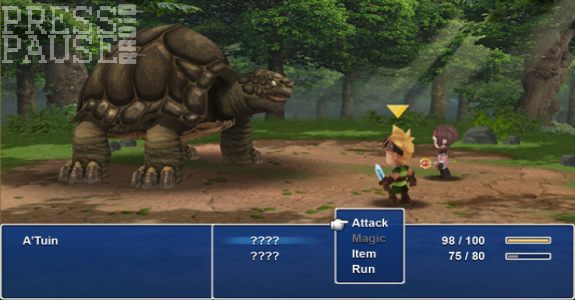
The constant barrage of random battles on the over-world only add to reinforcing the monotony, and just when you encounter the introduction of a new gimmick, the fresh appeal quickly evaporates, and you're left with the same tepid game flow. Most of these flaws wouldn’t be so apparent had it not been for Evoland’s complete lack of identity among the gimmickry. Even missed opportunities such as Double Twin (super simplified Tetra Master) and the equipment set during the Diablo-esque segments are just half-hearted name drops that almost operate into a placebo effect on whether or not this game really does anything different.
3D Dot Game Heroes and Half-Minute Hero have shown us that mechanics based around tributes and homages to other titles can be done well. And while imitation is the sincerest form of flattery, it’s also the most shallow form of expression; that’s the story of Evoland in a nutshell. The game is fairly short only inching around 6 hours if you collect everything, and while it’s cheap and fun for some cheap thrills and nostalgia, it’ll just exist as a reminder that all of the games it parodies are more worthy of your time than a game that can’t stand on its own.
